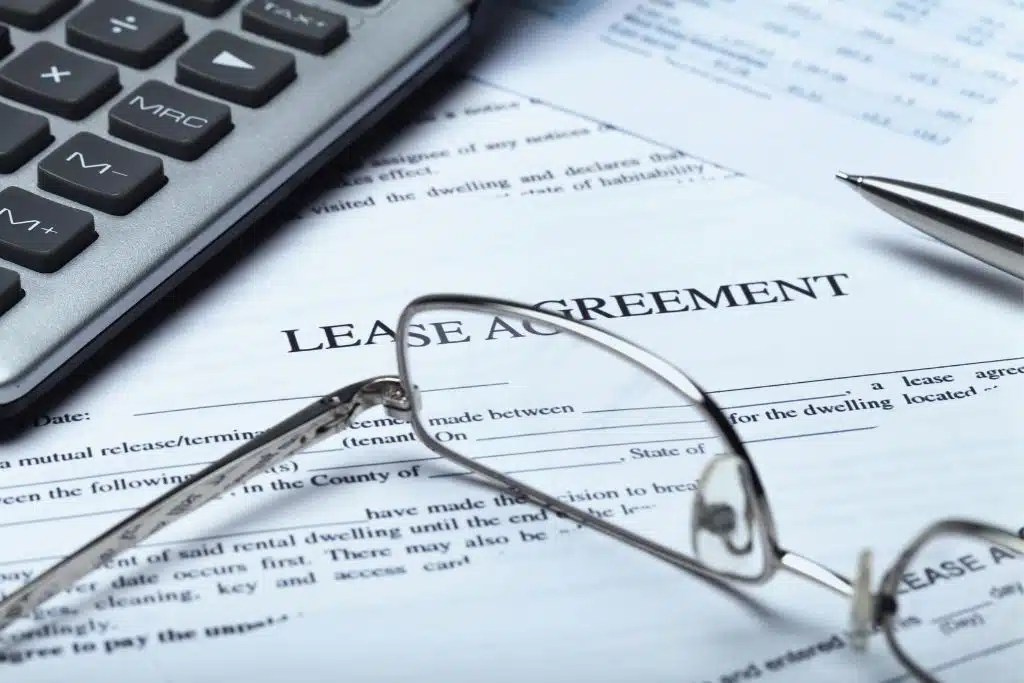How to Read a Lease
Before you sign, make sure you understand what you’re agreeing to. This guide breaks down lease terms, fees, and clauses every renter should know.

- Leases are legally binding agreements—read every clause before signing.
- Look for details on rent amount, due date, grace period, and late fees.
- Check for rules about guests, pets, parking, subleasing, and maintenance.
- Always confirm the lease term (e.g., month-to-month vs. 12-month) and renewal policy.
- Get any promises (repairs, upgrades, discounts) in writing—not just verbally.
How to Read a Lease: Step-by-Step
-
Start by Checking the Basics
Make sure your name, the landlord's name, the property address, and the lease start and end dates are accurate. -
Review the Rent Terms
Confirm the rent amount, due date, grace period, and late fee policy—know exactly what’s expected each month. -
Understand Security Deposit Rules
How much is due, what it covers, how and when you’ll get it back, and what deductions are allowed. -
Look for Additional Fees
Watch for charges like pet fees, parking fees, amenity fees, or monthly utility contributions. -
Check for Restrictions
Understand any rules about guests, noise, smoking, subletting, and pet policies. -
Confirm Repair and Maintenance Responsibilities
Who handles what? Look for clauses about emergency repairs, timelines, and tenant obligations. -
Get Promises in Writing
If your landlord promises a repair, upgrade, or rent concession—make sure it’s written into the lease before signing.
What to Expect When Reading a Lease
- Leases vary widely: No two landlords or property managers use the same format—read every page carefully.
- You may discover hidden fees: Watch for charges related to trash, pets, parking, or maintenance not included in rent.
- Clauses may favor the landlord: Understand your rights and don’t be afraid to ask for clarification or changes.
- Verbal promises may not be honored: If it’s not in writing, it may not be enforceable—get everything documented.
- It’s okay to take your time: Ask for a copy to review before signing—never rush a lease agreement.
Pro Tips & Common Mistakes to Avoid
- Don’t assume it’s standard: Every lease is different—read every word before signing.
- Watch for vague language: If terms like “reasonable notice” or “to be determined” appear, ask for clarification.
- Ask about renewal terms up front: Some leases automatically renew or include rent increases—know before you commit.
- Photograph everything at move-in: Document the unit’s condition to avoid unfair charges when you move out.
- Never rely on verbal agreements: Get all promises in writing and included in the signed lease document.
How Jill Caught a Hidden Lease Fee Before Signing
Jill, a recent college graduate moving into her first apartment, was excited to sign her lease. Before doing so, she carefully reviewed every clause—and noticed a recurring $45 “maintenance fee” buried in the fine print.
She also spotted language that allowed the landlord to raise rent by 10% with just 30 days’ notice, even during the lease term. Unsure if this was standard, Jill reached out to a local tenant advocate and learned that the clause was unusual—and negotiable.
Jill brought her concerns to the property manager, who removed the fee and revised the rent-increase clause to apply only at renewal. Thanks to her diligence, Jill protected her budget and gained confidence as a renter.
The result? Jill signed a lease she fully understood—and avoided surprise charges that could’ve cost her hundreds.
Frequently Asked Questions
Do I really need to read the entire lease?
What if I don’t understand something in the lease?
Can I negotiate lease terms?
What should I look for with security deposits?
Is it okay to rely on verbal agreements?
Need Help Understanding Your Lease?
Our housing counselors can help you review your lease, understand your renter rights, and avoid costly mistakes—before or after you sign.
Talk to a Housing Counselor
About the Author
Rick Munster is a personal finance expert and author with over 23 years of experience in the credit counseling industry. He currently serves on the board of directors for the Financial Counseling Association of America and has published more than 250 articles on personal finance. Over the course of his long-standing career at Money Fit, a nonprofit credit counseling organization, Rick’s insights have been featured by several news outlets on topics such as credit counseling, debt management, and financial education.
